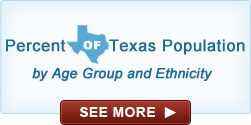Does dinner time in your house look like a Norman Rockwell painting with fresh-faced children happily eating a nutritious meal? Or is it more like a Simpson's episode with wisecracks and an emphasis on meat, meat and more meat? Even the most comically scattered of television families make it look easy to forge family time when, in fact, the work of uniting a group of connected, supportive and bonded individuals into a strong family is a messy, challenging effort. And one for which there is really no formal training.
El Buen Samaritano is helping our constituents forge the healthy, strong and supportive bonds of resilient families. We are launching an ambitious, multi-year strategic initiative to integrate our innovative nutrition, health, wellness, education and job training programs into a comprehensive family classroom approach that will guide our constituents to personal, social and economic success.
In any home, a constant stream of barriers—over-packed schedules, heavy work obligations, gadgets, illness, peer pressure or financial pressure—distract from activities that forge strong families. For Latinos living in Central Texas, language, employment, economic and cultural divides add exponentially higher barriers to the ability to create and maintain these ties. These distractions exact a toll in ways we wouldn't normally think of: poor health, increased weight, increased diabetes rates, lower educational achievement, depression and challenges maintaining employment. Read more about the community divide among Austin's Latino population.
In the 2000s, Latino births in the United States exceeded Latino immigration for the first time in 40 years. That milestone speaks to a prevalent generational language and culture divide among family members that can be detrimental to their success. In order for the Central Texas community to prosper, it will be critical to ensure that all families have the social and economic tools for success.
Recently, I sat down with El Buen Samaritano team members to discuss how our programs are working together to build strong and resilient families—ones in which the members support each other to achieve success, maintain healthy lifestyles and weather challenges. This conversation with Ben Swann, assistant education coordinator; Zully Paulin, case manager; and Katherine Muñoz, health education coordinator; explores the ways in which a family classroom approach is improving the lives of many in our community.
 Mona Izquierdo (MI): When we launched our youth health and fitness program, SummerFun with Born to Run, three years ago, we thought the focus would be childhood obesity. It soon became obvious that the solution wasn't just educating the child, but that the whole family had to be part of the solution to address a whole lifestyle change. It was then when the concept of ¡Salud Hoy! : Formando Familias Saludables was born. Well before the launch of the program, a year ago, we realized we needed to bring in elements of all El Buen's programs in order to really serve our families' needs. We learned that, in essence, we needed to create a family classroom where all members of a family could gain the tools and confidence to support each other's nutrition, health, wellness and communication. When we leveraged all these tools together, we realized we were making the biggest impact on health and skills attainment. How do you see your program area fitting into our family classroom approach?
Mona Izquierdo (MI): When we launched our youth health and fitness program, SummerFun with Born to Run, three years ago, we thought the focus would be childhood obesity. It soon became obvious that the solution wasn't just educating the child, but that the whole family had to be part of the solution to address a whole lifestyle change. It was then when the concept of ¡Salud Hoy! : Formando Familias Saludables was born. Well before the launch of the program, a year ago, we realized we needed to bring in elements of all El Buen's programs in order to really serve our families' needs. We learned that, in essence, we needed to create a family classroom where all members of a family could gain the tools and confidence to support each other's nutrition, health, wellness and communication. When we leveraged all these tools together, we realized we were making the biggest impact on health and skills attainment. How do you see your program area fitting into our family classroom approach?
 Ben Swann (BS): For the school-aged kids in our after-school and fitness programs, just getting them here—active, learning, playing and interacting with other kids—gives them options other than hanging around after school with nothing to do or playing video games. But it's more than that. When a 16-year-old boy is playing ball with a 6-year-old, which, aside from this program, is often a rare thing to see, you can actively see him gaining skills and building confidence.
Ben Swann (BS): For the school-aged kids in our after-school and fitness programs, just getting them here—active, learning, playing and interacting with other kids—gives them options other than hanging around after school with nothing to do or playing video games. But it's more than that. When a 16-year-old boy is playing ball with a 6-year-old, which, aside from this program, is often a rare thing to see, you can actively see him gaining skills and building confidence.
And that confidence evolves into trust in us, which leads us to finding other ways we can help him—whether it's with school work, building self-esteem, dealing with bullying, or stretching to achieve something new. A lot of the teens in the program don't see themselves beyond high school, and we can help them see higher education as an option and learn how to build positive, meaningful identities.
Zully Paulin (ZP): That confidence Ben is building with his teens spills over to the behavioral health work we do with the kids and their parents. As in any other program area, we build our curriculum based on client needs. Our clients have expressed a need to increase their communication and problem-solving abilities among family members, so we coach them on the tools that improve communication and provide practical opportunities to apply that communication.
For example, we did a role play exercise a few weeks ago that had the parents play a teen and the teens play the parent. The conversation was about dating—a challenging discussion in any family—and it was amazing to see the light bulbs go on as each player learned how to have a discussion and be an active listener about such a touchy subject in a safe environment. That was one step toward building confidence.
MI: My favorite activity that we've done is the rock climbing wall, because children and parents get to see each other pushing their comfort levels. The parents want to demonstrate their bravery to their kids, to show that they are willing to tackle obstacles. The kids get to cheer their parents on and gain self-confidence in seeing their parents taking on challenges. They translate that bravery into approaching obstacles they might face on a daily basis, whether it's with school or work. This inadvertently helps them build a stronger sense of support for one another when they try new things and explore new opportunities.
It's so exciting to see families coming together to try those experiences. When we get families to explore new flavors or taste and enjoy healthy foods, I can see the new ideas popping. And I know that at home a kid will tell the parents if they are eating something unhealthy or the parents can push their kids to try a new vegetable or grain. It's more than changing behavior—it's getting them to explore new opportunities together.
My nutrition classes often wind up as English-language and customs lessons. I'm translating trans-fats, high-fructose corn syrup and other terms on the nutrition labels. I'm explaining that the "chicken" they see at McDonald's or with a label in the grocery store is much different from the "chicken" they may have raised, killed and eaten back in their country of origin. Many of my clients are eating what was healthy back home and wondering why their kids have diabetes or are obese.
I actually want them to retain the approach they had in their home country. So I help them translate how the packaged, heavily-advertised, easy-to-get food in the United States is making them sick by explaining to them the impact of chemicals, such as high-fructose corn syrup, on their bodies. I'm helping them get the language they need to learn how to maintain healthy approaches.
In essence, we're helping them acculturate, rather than assimilate, to a new way of life so their chances of success are greater. We help them take the best out of both cultures in a way that's emotionally and physically healthy.
MI: Communication, confidence and trust are all challenges that any family, in any part of the world, from any part of the community, faces. But the challenges are even more difficult for the families who come to El Buen, most of whom are recent immigrants. What do you see as the biggest differentiating challenge among El Buen's families?
BS: Definitely language. A lot of our parents speak one language—usually not English—and the kids speak two. For many of my kids, they start off speaking Spanish, switch to English in school, lose a lot of their Spanish and wind up never completely mastering either language. Then, the parents don't know how to help their kids with homework or many other activities.
Last weekend, I was at a soccer tournament with an El Buen family. I heard kids—not El Buen kids—cussing like sailors on the field, but their parents had no idea how rude and disrespectful their kids were. The language divide will keep parents from instilling values, and kids from learning respectful behavior.
But sometimes the parents don't even want their kids to speak Spanish, just English. So kids who could have a natural head start on being a bilingual employee wind up losing a competitive employment advantage.
MI: When we started the ¡Salud Hoy! program, we tried to teach one class in English and the other in Spanish. It wasn't five minutes before we tossed that concept aside and now the classes are almost completely bilingual. And really, that's what our families need—practical tools to interact in our community in both languages.
ZP: Each and every one of the families we serve at El Buen wants to succeed as a family and in America. Some of the teens I work with feel pressure or confusion because their parents want that success. They say they want "more" for them than they had—for many, that’s the main reason they immigrated here—but they don't know what "more" looks like or how to achieve it. It's hard to talk about expectations when parents come from one culture and kids have grown up in another. We can coach and guide conversations that let families work together to respect their roots while gaining success in an American community.
MI: By building their confidence and increasing their skills, we can help them be stronger families.
Within the next 40 years, the Latino population in Texas is projected to exceed the Anglo population in every age group. El Buen's programs, which create a family classroom, will ensure all members of our community have the tools to engage in our institutions, economy and society.










